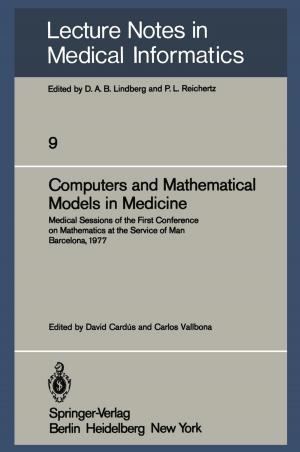Essential Aspects of Atopic Dermatitis
Nonfiction, Health & Well Being, Medical, Medical Science, Immunology, Specialties, Pediatrics| Author: | Georg Rajka | ISBN: | 9783642747663 |
| Publisher: | Springer Berlin Heidelberg | Publication: | December 6, 2012 |
| Imprint: | Springer | Language: | English |
| Author: | Georg Rajka |
| ISBN: | 9783642747663 |
| Publisher: | Springer Berlin Heidelberg |
| Publication: | December 6, 2012 |
| Imprint: | Springer |
| Language: | English |
"Le secret d'ennuyer est celui de tout dire. " Voltaire (Discours sur l'homme) Atopic dermatitis (AD) is frequently seen by dermatologists and pediatricians, by allergologists, and by many practitioners. The amount of data on AD is vast as it has been recognized for a very long time, has a worldwide distribution, and has a chapter or section devoted to it in every textbook or review of skin diseases. Difficulty arises in evaluating certain aspects of this complex disease, for many studies have been concerned with only some of its facets and with small numbers of patients. In addition a monograph on AD should also try to encompass the important theoretical aspects of this fascinating disease. There fore, the problem in presenting a monograph on AD lies more in the critical se lection than in the gathering of information, much of which is conflicting. This applies both to basic data and to details. Furthermore, the many divergent opinions in almost every field make it extremely difficult to draw unanimous conclusions. Consequently, the author has no option but to quote antagonistic views, try to make a compromise between these, and express his own opinion based on clinical experience and fundamental literary work.
"Le secret d'ennuyer est celui de tout dire. " Voltaire (Discours sur l'homme) Atopic dermatitis (AD) is frequently seen by dermatologists and pediatricians, by allergologists, and by many practitioners. The amount of data on AD is vast as it has been recognized for a very long time, has a worldwide distribution, and has a chapter or section devoted to it in every textbook or review of skin diseases. Difficulty arises in evaluating certain aspects of this complex disease, for many studies have been concerned with only some of its facets and with small numbers of patients. In addition a monograph on AD should also try to encompass the important theoretical aspects of this fascinating disease. There fore, the problem in presenting a monograph on AD lies more in the critical se lection than in the gathering of information, much of which is conflicting. This applies both to basic data and to details. Furthermore, the many divergent opinions in almost every field make it extremely difficult to draw unanimous conclusions. Consequently, the author has no option but to quote antagonistic views, try to make a compromise between these, and express his own opinion based on clinical experience and fundamental literary work.















